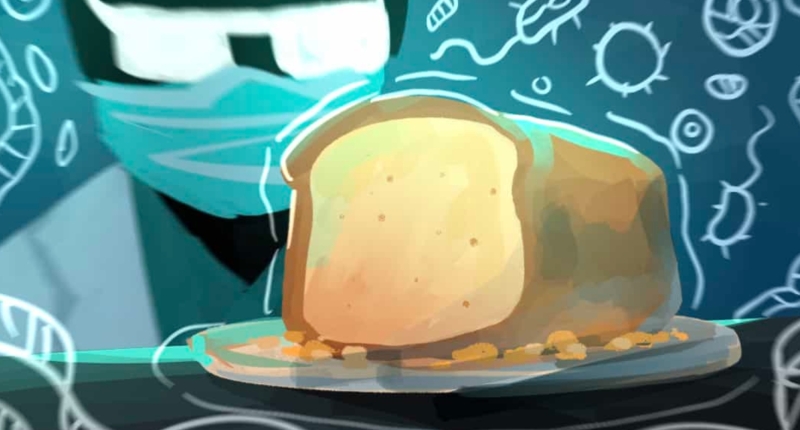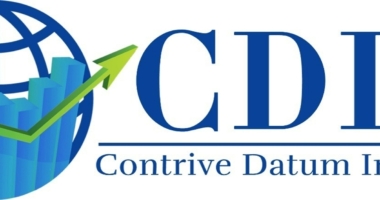BakeryScan is an AI-powered system developed by BRAIN Co., Ltd that can identify over 50 different varieties of bread with 98% accuracy. However, in 2017, a doctor at Kyoto’s Louis Pasteur Center for Medical Research noticed that the system’s identification of bread looked like cancer cells under a microscope. BRAIN began developing a pathology-centered prototype of BakeryScan called Cyto-AiSCAN, which can identify potential cancer cells with 99% accuracy.
Cyto-AiSCAN’s success is due to a “hand-tuned” approach that doesn’t rely on deep learning techniques, which require vast amounts of data. With only a few samples, Cyto-AiSCAN can identify new cancer cell types with remarkable accuracy, making it an efficient and effective tool for cancer research.
Hisashi Kambe, the founder of BRAIN Co., Ltd, argues that deep learning is impractical for certain tasks because of the vast amount of data it requires. Cyto-AiSCAN’s success demonstrates the potential of AI-powered systems to revolutionize other industries and improve their efficiency and accuracy.
The Intersection of Bread and Cancer Detection with AI

Computer vision, a subset of artificial intelligence (AI), is used to extract information from visual input. This information is primarily related to recognition and identification, and the technology has various applications such as image classification, object detection, object tracking, and content-based image retrieval.
Interestingly, the bakery industry and hospitals share a common problem in distinguishing different variations of one categorical object. For instance, the ability to differentiate between different types of pastries and detecting cancer cells from normal cells requires the same system.
Deep learning, an AI technique that involves the use of neural networks, is the solution to this problem. In 2012, Alex Krizhevsky and his team from the University of Toronto created a neural network model called AlexNet that employs deep learning to classify images into different object categories. The neural network layers in AlexNet resemble the human visual cortex, with different levels performing different functions.
However, deep learning requires vast amounts of sample data. This means that feeding computers with limited images often results in a skewed representation of the object. For instance, an object might be categorized as a new, separate object due to a deviation from its typical condition. To improve the accuracy of the classification process, the computer needs to be fed a vast amount of sample data. For example, to define the features that distinguish a doughnut, the computer needs to be shown a thousand images of doughnuts.
Automated checkout systems in Japanese bakeries present a unique challenge due to the vast variety of pastries available. Bakeries offering a larger variety of pastries sell more, and unwrapped pastries sell better than individually wrapped ones. To accommodate these two conditions, the bakery venture wanted to incorporate an automated checkout system. However, traditional barcode scanners are not equipped to identify the different types of pastries available.
One significant challenge for computers is that they lack experiential and spatial context, making it challenging to distinguish objects or parse a scene. Humans have a lifetime of context training, allowing us to differentiate between different lighting conditions, shadows, textures, and so on, but computers lack this ability.
BakeryScan: The Pastry AI That Outperforms Deep Learning
Context is a significant factor in our ability to identify objects. We can recognize a doughnut or glass, even if we encounter a new variation of the object. Unfortunately, computers lack this context, which makes it difficult for them to distinguish objects or identify their features.
Hisashi Kambe, the founder of BRAIN Co., Ltd, developed BakeryScan, an AI-powered system that can identify over 50 different varieties of bread with 98% accuracy. The system uses a backlight to eliminate shadows cast by pastries, which could interfere with accurate identification. Kambe’s team even developed a mathematical model that relates baking time to the color of the pastry.
BakeryScan is a hand-tuned system that outperforms deep-learning techniques. While deep learning requires thousands of training examples to identify new pastry types effectively, BakeryScan achieves 90% accuracy after analyzing only five samples. With 20 samples, the system is nearly perfect.
Andersen Bakery, one of BRAIN’s biggest customers, has deployed BakeryScan in hundreds of bakeries. The system includes a feedback mechanism that prompts operators to specify the pastry’s identification if the system isn’t confident in its guess. This feedback helps BakeryScan learn and progressively achieve a higher level of accuracy.
While BakeryScan was developed for bakeries, the technology is also relevant to cancer research. Deep learning, another AI technique, is used to classify cancer cells. Unfortunately, deep learning requires vast amounts of sample data, and minor variations can affect the system’s accuracy.
Distinguishing between different variations of one categorical object is a mutual problem among bakeries and hospitals. For example, detecting cancer cells among normal cells requires the same system as distinguishing between types of pastries. BakeryScan could be adapted to cancer research, providing a highly accurate and efficient system for detecting cancer cells.
In conclusion, BakeryScan is a revolutionary system that has revolutionized the bakery industry. The technology’s ability to identify different pastry types with remarkable accuracy and speed demonstrates the potential of AI in other industries. With the right modifications, BakeryScan could become a game-changer in cancer research, improving detection rates and providing more efficient diagnoses.
From Bread to Cancer Detection: BakeryScan’s Evolution
BakeryScan, an AI-powered system developed by BRAIN Co., Ltd, initially identified different varieties of bread in bakeries with remarkable accuracy. However, in 2017, a doctor at Kyoto’s Louis Pasteur Center for Medical Research noticed that the system’s identification of bread looked like cancer cells under a microscope.
BRAIN began researching and developing a pathology-centered prototype of BakeryScan, called Cyto-AiSCAN. At a conference in Sapporo about AI identification of cancer cells, Hisashi Kambe argued that deep learning was impractical for certain tasks because of the vast amount of data it requires.
In 2021, a prototype of Cyto-AiSCAN was tested in two major hospitals in Kobe and Kyoto. The system can examine an entire microscope slide and identify potential cancer cells with 99% accuracy.
In an interview, James Somers asked Kambe if he used deep learning to achieve Cyto-AiSCAN’s success, to which Kambe replied with a smile, “Original way, same as bread.”
Don’t miss interesting posts on Famousbio










